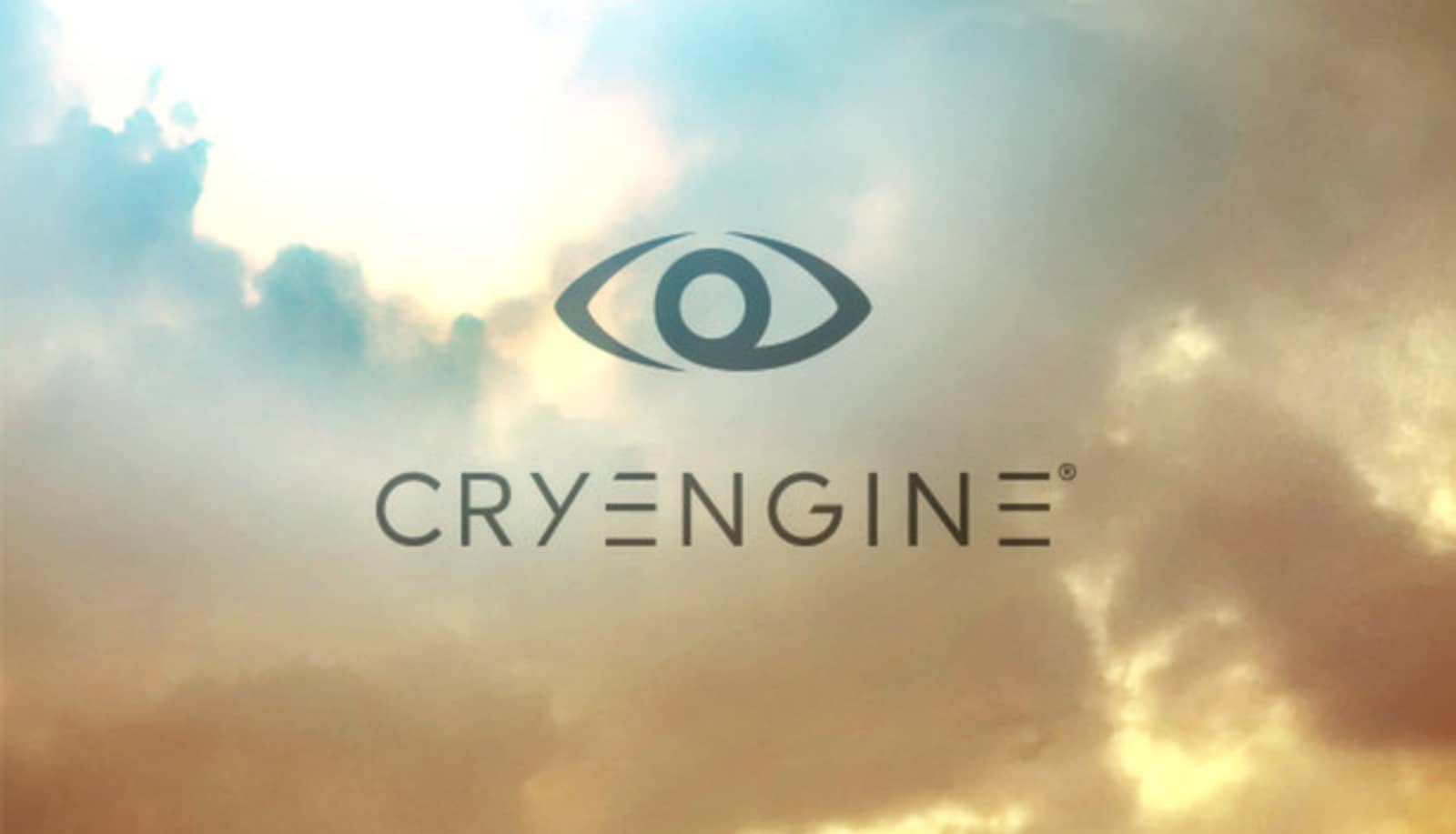As a CryEngine enthusiast, I understand that finding the best laptop for Cryengine development can be a daunting task. This powerful game engine is known for its stunning visuals and demanding performance requirements, making the right hardware selection crucial for a smooth and efficient workflow. In this guide, I'll walk you through the factors to consider when searching for the perfect laptop to cater to your CryEngine development needs.
Having reviewed an extensive laptop spreadsheet of recent releases, I've compared specs and reviews, both professional and user-generated, to narrow down the top laptops based on CryEngine-specific requirements and price ranges. When working with CryEngine, aspects such as a high-performance CPU, a dedicated GPU, and ample RAM are essential to handle the engine's complex calculations and rendering tasks. Additionally, a fast storage solution and a vibrant, high-resolution display are equally important for efficient asset management and accurate visual representation.
As a member of the CryEngine community, I've followed numerous discussion boards, Crytek webinars, and industry events to stay informed about the latest advancements in the field. In this guide, I will focus on the unique requirements and preferences of CryEngine users, helping you find the best laptop for your creative endeavors. Whether you're an aspiring game developer, a professional artist, or a passionate hobbyist, this guide will provide the information and insights needed to make an informed decision and ultimately enhance your CryEngine experience.
Processor Power
laptops
In the past few years, the laptop processor market has seen a lot of advancements and changes. Apple released their own ARM-based M1, M1 Pro, M1 Max and M2 system-on-chip modules; they offer exceptional single-core performance and battery life. AMD has also managed to take 20% of the CPU market by releasing their 6th generation Ryzen processors. Meanwhile, we're still waiting for Intel's 13th-gen processors to reach laptops – with 12th generation Intel's latest.
CryEngine is available on both Windows and macOS, so you can choose whichever platform best suits your needs; if you're looking for a MacBook, I'll assume you're going for a high-end MacBook Pro. The CPU is one of the most important components in a gaming laptop, but it's not the only one. A more powerful CPU will not make up for poor GPU or display quality.
There are various ways to compare CPUs, but I prefer using Cinebench R20 multi-core scores because it's a well-known benchmark that tests all-around performance instead of being biased towards one particular use case such as gaming or video editing. Intel and Apple's silicon chips have adopted hybrid performance/efficiency core design (based on big.LITTLE) where you can mix and match different cores depending on the workload. This means if you're looking for a laptop for light gaming and productivity, you can opt for an Intel Core i5 processor. Ryzen models are best if you need a good battery life in a PC laptop.
If you're looking for a budget gaming laptop – don't expect to get top-tier performance; instead, look for a mid-range processor with a fast GPU and plenty of RAM (8 GB+). Here are the recommended processors for various budgets/laptops sizes:
Minimum: i3-1115G4
Recommended: i5-10310U
High-end: i7-1180G7
Powerful Graphics
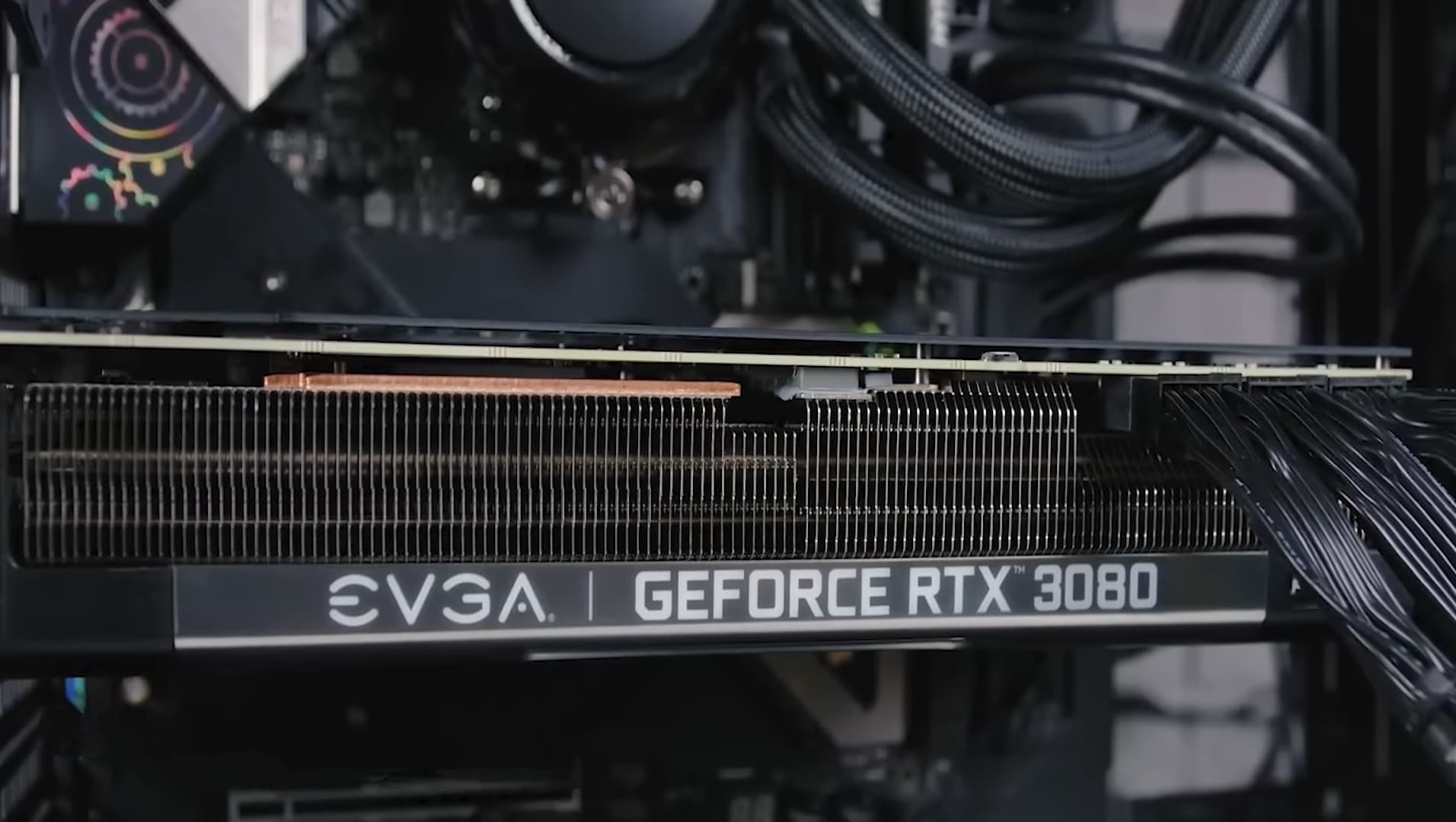
In today's laptop market, Nvidia continues to dominate. While they recently released the RTX 40 series cards, these are not yet available on laptops. Therefore, if you want the best performance you can get, you should consider the RTX 30 series, such as the RTX 3070 Ti. Unfortunately, since Nvidia has discontinued the Max-Q label for its RTX cards, the exact GPU wattage is determined by the laptop manufacturer (OEM), resulting in a wide variance in graphics performance in laptops with the same GPU chipset.
The requirements for using CryEngine are pretty standard. You'll need a mid-range to high-end GPU if you want to play games at high framerates and/or with high visual settings. Nvidia's RTX 20 series cards are more powerful than their predecessors, but they consume more power and produce more heat, which may be an issue in some small notebooks.
I use 3DMark to compare different graphics cards, as it is one of the most reliable benchmarks available. However, it's not ideal since it doesn't always match real-world performance. To improve my estimation of real-world performance, I also use Unigine Heaven and 3DMark Fire Strike (Time Spy) benchmarks.
Based on my findings, I recommend the following GPUs:
| GPU | Performance | Average Laptop Price |
|---|---|---|
| GeForce GTX 1650 | Minimum | ~$700 |
| GeForce RTX 3050 | Recommended | ~$900 |
| GeForce RTX 2060 | High-end | ~$1,200 |
If you're looking for a laptop with a long battery life, consider getting one with an AMD APU instead of an Nvidia GPU; they tend to have better power efficiency when dealing with video encoding or machine learning workloads found in machine learning libraries such as TensorFlow or Caffe2.
Cryengine FAQs
Q: What laptop specs are recommended for Cryengine?
When it comes to running Cryengine, you'll want a laptop with at least 16 GB of RAM, a powerful processor like the i7-1180G7, and a graphics card such as the GeForce RTX 2060. These specs will ensure smooth performance and allow you to take full advantage of the engine's capabilities.
Can Cryengine run on a laptop?
Absolutely! Cryengine is designed to run on various hardware configurations, including laptops. However, it's important to note that laptops have their limitations when it comes to cooling and power delivery. So while Cryengine can run on a laptop, you'll need to make sure your laptop meets the recommended specs and has proper cooling to prevent overheating.
Which laptops are compatible with Cryengine?
There are several laptops available on the market that are compatible with Cryengine. Some recommended options include the HP Victus, Dell G15, ASUS ROG Strix G15 G513RM, ASUS ROG Strix Scar, and Lenovo Legion Pro 7i 16. These laptops offer the necessary performance and specifications to handle Cryengine's demands.
How much RAM is needed for running Cryengine on a laptop?
To run Cryengine smoothly on a laptop, a minimum of 16 GB of RAM is recommended. This will ensure that you have enough memory to handle the engine's resource-intensive processes and prevent any lag or performance issues.
What graphics card do I need for Cryengine?
The recommended graphics card for running Cryengine on a laptop is the GeForce RTX 2060. This graphics card provides the necessary power to handle Cryengine's advanced graphics and rendering capabilities. However, if you're on a budget, the GeForce GTX 1650 or the GeForce RTX 3050 can also run Cryengine with acceptable performance.
Is a gaming laptop necessary for running Cryengine?
While it's not strictly necessary to have a gaming laptop to run Cryengine, it's highly recommended. Gaming laptops are specifically designed to handle the demanding requirements of modern games and game development software like Cryengine. They offer better cooling systems, more powerful processors, and dedicated graphics cards, ensuring a smoother and more enjoyable experience.
What CPU is recommended for running Cryengine on a laptop?
For running Cryengine on a laptop, it's recommended to have a powerful processor like the i7-1180G7. This CPU offers excellent performance and multitasking capabilities, allowing you to work on complex projects and run Cryengine smoothly. However, if you're on a budget, the i5-10310U is a decent alternative that can still handle Cryengine reasonably well.
Can Cryengine run smoothly on a budget laptop?
While Cryengine is a demanding engine, it is possible to run it on a budget laptop. If you're working with a tight budget, aim for a laptop with at least 8 GB of RAM, an i3-1115G4 or i5-10310U processor, and a GeForce GTX 1650 or GeForce RTX 3050 graphics card. These specs should allow you to run Cryengine with acceptable performance, although you may need to make some compromises in graphics settings.
How to choose a laptop for Cryengine development?
When choosing a laptop for Cryengine development, there are a few key factors to consider. First, make sure the laptop meets or exceeds the recommended specs, including at least 16 GB of RAM, a powerful processor like the i7-1180G7, and a graphics card such as the GeForce RTX 2060. Additionally, consider factors like cooling capabilities, display quality, storage options, and portability to ensure you have a comfortable and efficient development experience.
Are there any specific laptop brands recommended for Cryengine?
While there isn't a single brand that dominates the market for Cryengine-compatible laptops, there are a few brands known for producing high-quality gaming laptops. Some recommended brands include HP, Dell, ASUS, and Lenovo. Within these brands, models like the HP Victus, Dell G15, ASUS ROG Strix G15 G513RM, ASUS ROG Strix Scar, and Lenovo Legion Pro 7i 16 offer the necessary performance and reliability for running Cryengine effectively.
RAM Optimization
The latest generation of Intel and AMD CPUs support both DDR4 and DDR5, but DDR5 is still quite expensive and needs time to mature as a technology. Most mid-range laptops come with 16 GB of RAM, while high-end models have 32 GB or more.
Cryengine is a hungry beast, and you'll need a lot of RAM to feed it. If you're working with large 3D scenes, you'll need at least 32 GB of RAM. If you're working with multiple projects at once, you might want to consider 64 GB.
So, how much RAM is enough? The short answer is – as much as possible! But if we're talking about realistic requirements – 32 GB should be enough for most people. 64 GB would be ideal, but it's not necessary for most people.
When buying a gaming laptop, the new DDR5 RAM isn't necessary yet but it will be soon. Other considerations to think about include:
- ECC (Error-Correcting Code) – this helps to ensure data accuracy and reliability
- CL (CAS Latency) – this determines how quickly RAM responds to commands from the processor
- Frequency – the speed of RAM
- Timings – additional instructions used by RAM to access data
Depending on your budget, here's what you can expect from each price bracket:
- Under $1,000 – 8 GB of RAM. While this is enough for many tasks, it's not enough to get the best performance in Cryengine.
- $1,000-$2,000 – 16 GB of RAM. This is more than enough for gaming and general multitasking. It should also be enough for most mid-level Cryengine projects.
- $2,000+ – 32 GB of RAM. This should be enough to power through most high-end Cryengine projects with ease.
So, if you're looking for the best gaming laptop under $2,000, consider one with DDR5 RAM since that's the latest standard. However, if you're on a budget, 8 GB should suffice for general gaming and multitasking.
Hope this guide helps you decide on the right laptop RAM for Cryengine!
5 Best Laptops for Cryengine
acer Nitro 5
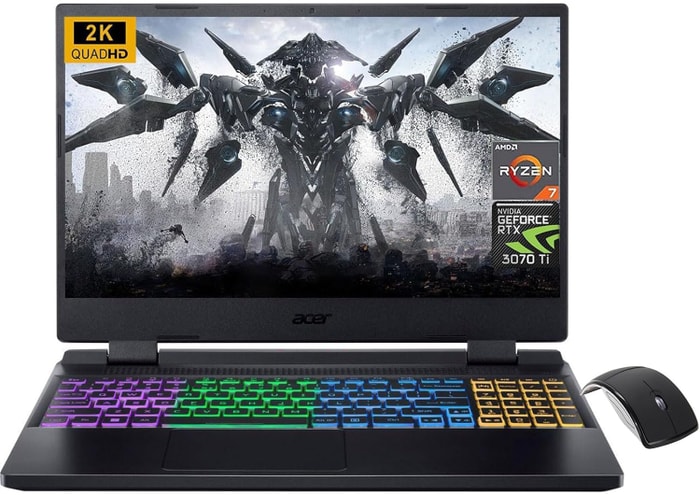
Pros and cons
- One of most affordable laptops with an AMD Ryzen 7 processor
- Ample 1TB SSD
- No IPS Panel (limited viewing angles)
Alternatives
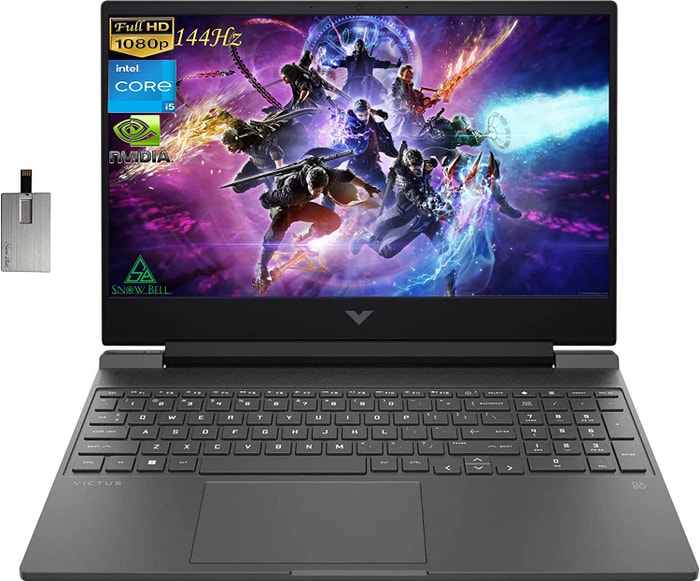
HP Victus
- Delivers smooth gameplay at 1080p.
- Fast SSD.
- No VRR to reduce screen tearing.
- Some performance loss on CPU under load.
ASUS TUF F15 FX507VU-ES53
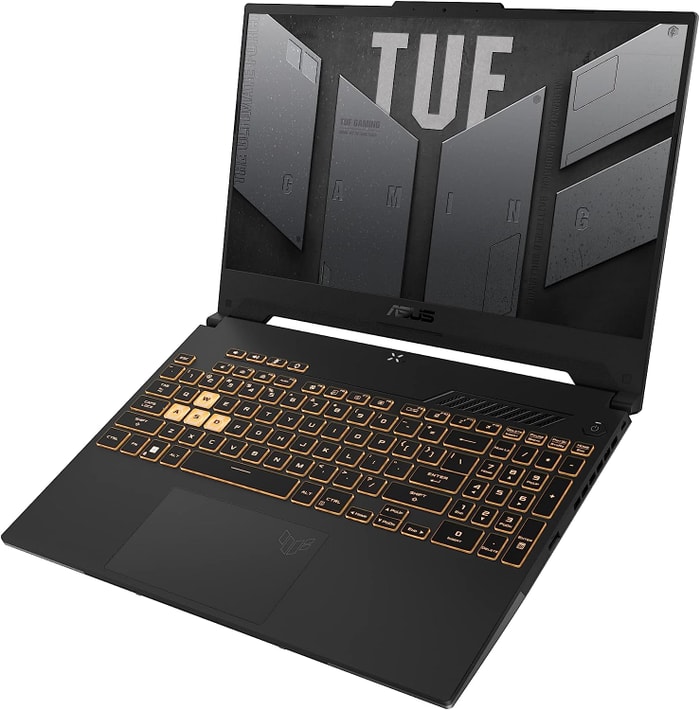
Pros and cons
- Superb 1080p gaming performance
- Strong productivity capabilities
- Poor webcam, touchpad, and speakers
- Some games appear washed out on display
Alternatives

ASUS TUF Dash F15
- Lightweight and well built
- Good input options
- Quirks affecting everyday ergonomics
- Ports squeezed together on the left edge
ASUS ROG Strix G15

Pros and cons
- High-performance CPU and GPU
- Good workmanship and design
- Skimpy connectivity
- Coil whine in certain situations
Alternatives
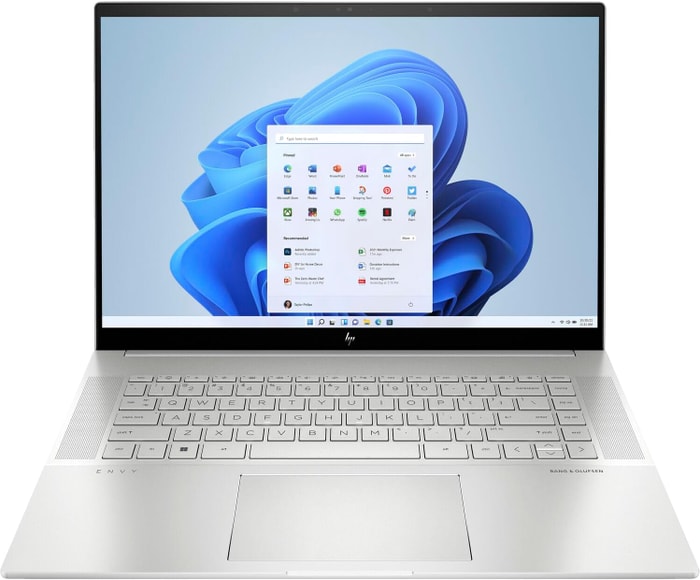
HP Envy 16
- Plenty of CPU and GPU power
- New 120Hz screen refresh rate
- Merely adequate base screen
- Optional OLED has fewer pixels than before
Lenovo Legion Pro 5
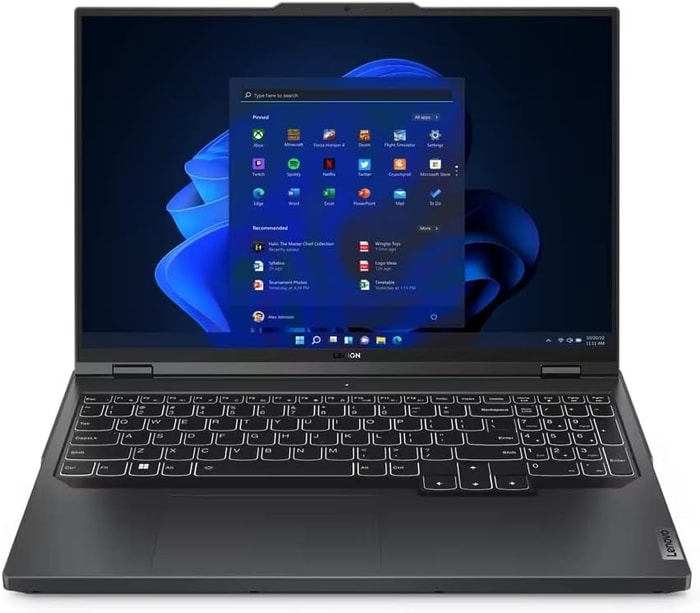
Pros and cons
- Good build quality and design
- Good screen and IO
- No Thunderbolt or biometrics
- Hotspots during gaming
Alternatives
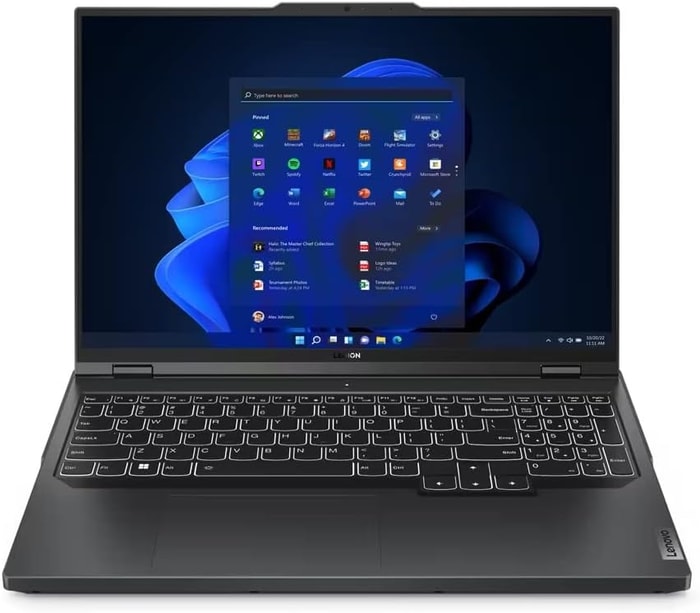
Lenovo Legion Pro 5
- Strong performance for the price
- Quality build and port selection
- Display quality and battery life are just decent
- Bulky and heavy
Lenovo Legion Pro 7i 16

Pros and cons
- Strong overall performance
- Big, bright, and fast display
- Some flex to keyboard deck
- Poor battery life
Alternatives
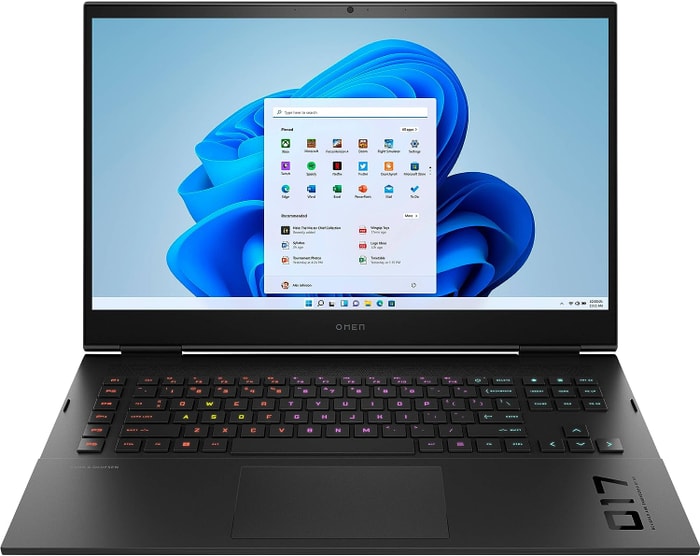
HP Omen
- Slim and portable build
- Midrange gaming performance at a reasonable price
- All-AMD configuration lags behind Intel- and Nvidia-based competitors
- Unimpressive 144Hz refresh rate and full HD resolution
Table of the Best Laptops for Cryengine
| Laptop | Price (approx) |
| acer Nitro 5 | $680 |
| ASUS TUF F15 FX507VU-ES53 | $1100 |
| ASUS ROG Strix G15 | $1750 |
| Lenovo Legion Pro 5 | $2630 |
| Lenovo Legion Pro 7i 16 | $3390 |

